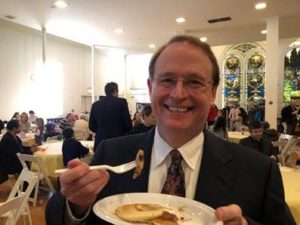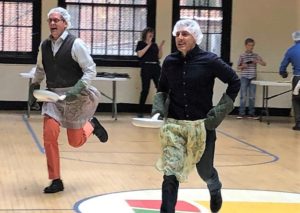The first century Jew that we know as Jesus of Nazareth was undoubtedly a charismatic presence. People flocked to him. They listened to him. They put their lives on hold and at risk to follow him. What made them do that? Certainly there were many factors, but I like to think his eyes were very important.
In my imagination, when Jesus of Nazareth looked someone in the eye, that person knew they were dealing with something they had never encountered before. They knew that this man was an enigma, and they knew that they felt his look in their bones. But his was not a look that was alarming or painful, but rather was one which was determined, wise, compassionate, and stubborn.
As far as I know, the Gospels are silent on whether or not Jesus looked people directly in the eye, but I have a couple of favorite scriptures where I like to think that was what happened. One of them is in the scripture lesson from Sunday, March 17 – Luke 5:1-11.
When he had finished speaking, he said to Simon, “Put out into the deep water and let down your nets for a catch.” Simon answered, “Master, we have worked all night long but have caught nothing. Yet if you say so, I will let down the nets.” When they had done this, they caught so many fish that their nets were beginning to break.
This scripture always makes me smile. Luke leaves us to imagine what might have transpired between Peter’s words “… but have caught nothing” and “yet if you say so….”. Something important happens in that moment, yet we find a big yawning gap in Luke’s narrative. If I was writing this as a script I would write it as follows:
Jesus: Put out into the deep water and let down your nets for a catch.
Simon: (exhausted, not really paying attention) Master, we have worked all night long but have caught nothing. (Simon looks at Jesus in exasperation. Jesus looks Simon in the eye and holds his gaze. There is a pause. Simon fidgets. Looks at his feet. Looks at the others. Looks back at Jesus. Sighs.) Yet if you say so, I will let down the nets.
Moments later, the nets are full of fish and Simon is on the ground at Jesus’s feet. Luke records, “But when Simon Peter saw it, he fell down at Jesus’ knees…” Simon saw in the nets what he had failed to see in the eyes of Jesus.
It is easy to believe that there was authority in the gaze of this mysterious yet approachable man. We can imagine that his eyes demonstrated a power that did not subvert free will, but rather invited the seer into a new way of thinking, into a new kind of trust, and then invited the seer to come along on a journey. Simon had a choice, and the script could have gone another way. But Jesus – and his riveting, compelling gaze – did not give up easily. At the beginning of this narrative, the fisherman is called Simon. While crumpled at Jesus’s feet Luke calls him Simon Peter. A few verses later in chapter 6, he is called “Simon, whom he named Peter.” Simon the fisherman has become Peter the rock, almost before our eyes.
I like to think that when Jesus looked people in the eye, he also smiled – knowingly, lovingly, and with wry amusement – otherwise his look, alive with his passion, drive, and commitment, might have been too much to bear. As a matter of fact, I can imagine that Jesus chuckled as he spoke to the man at his feet. “Do not be afraid; from now on you will be catching people.” And so, as the story continues, “When they had brought their boats to shore, they left everything and followed him.”

